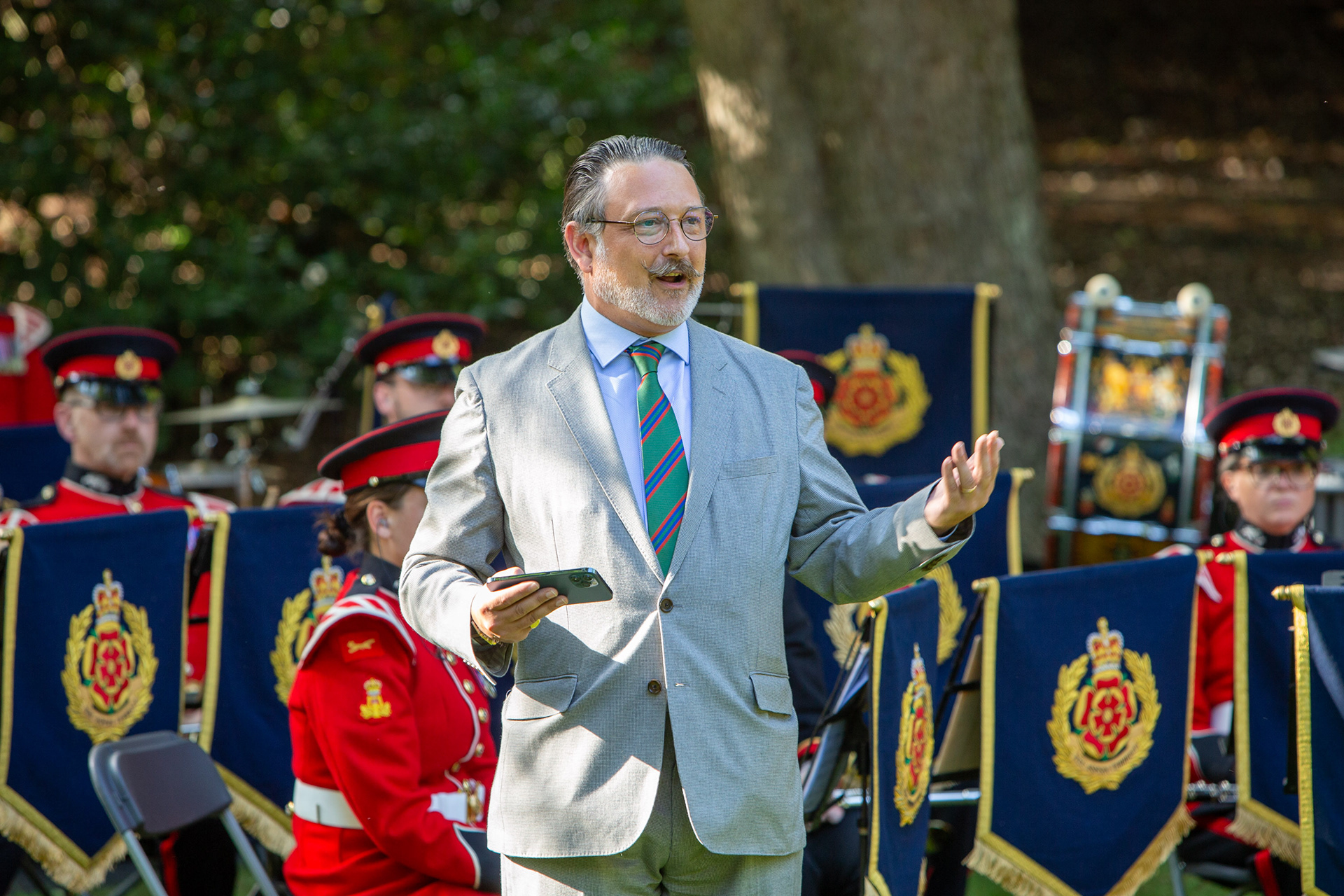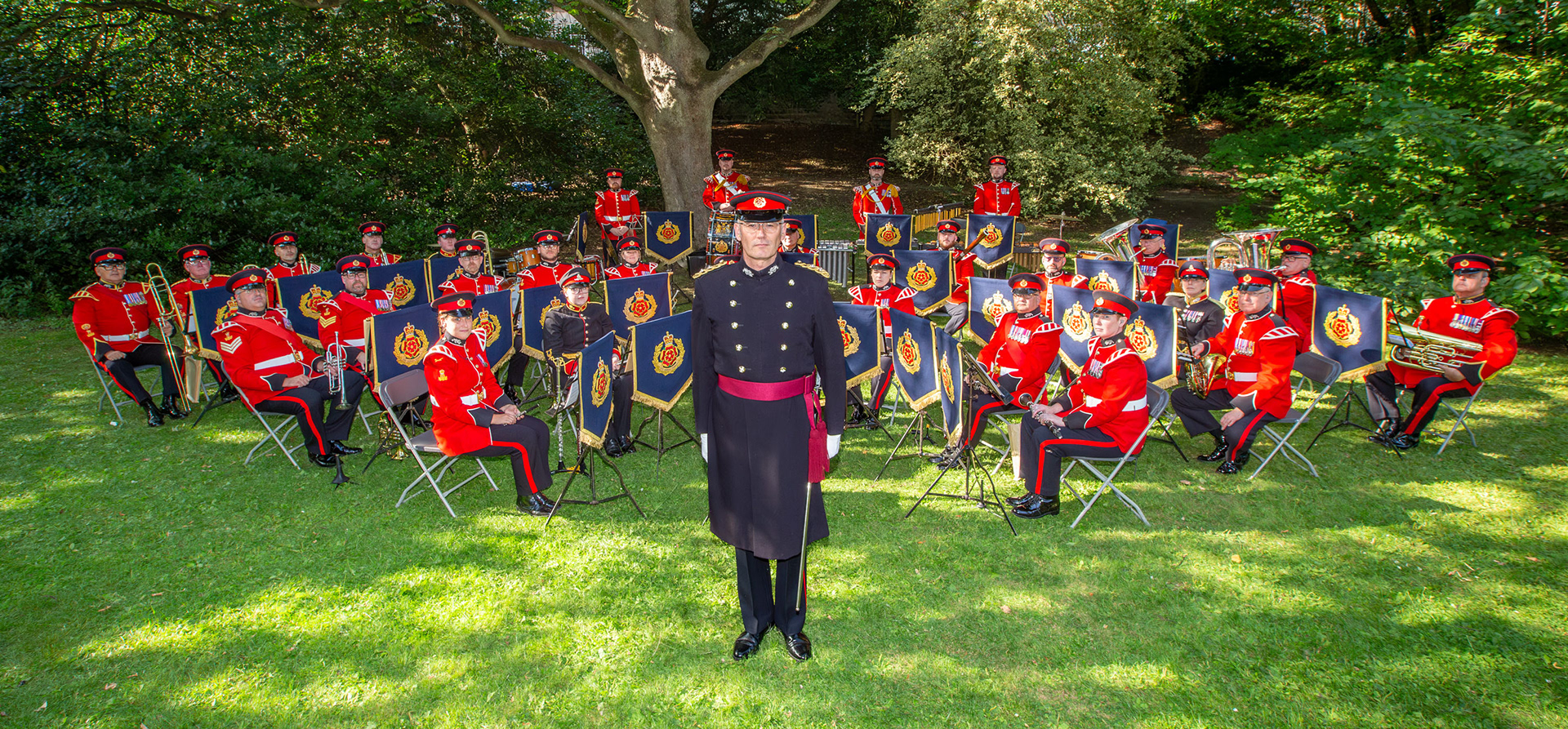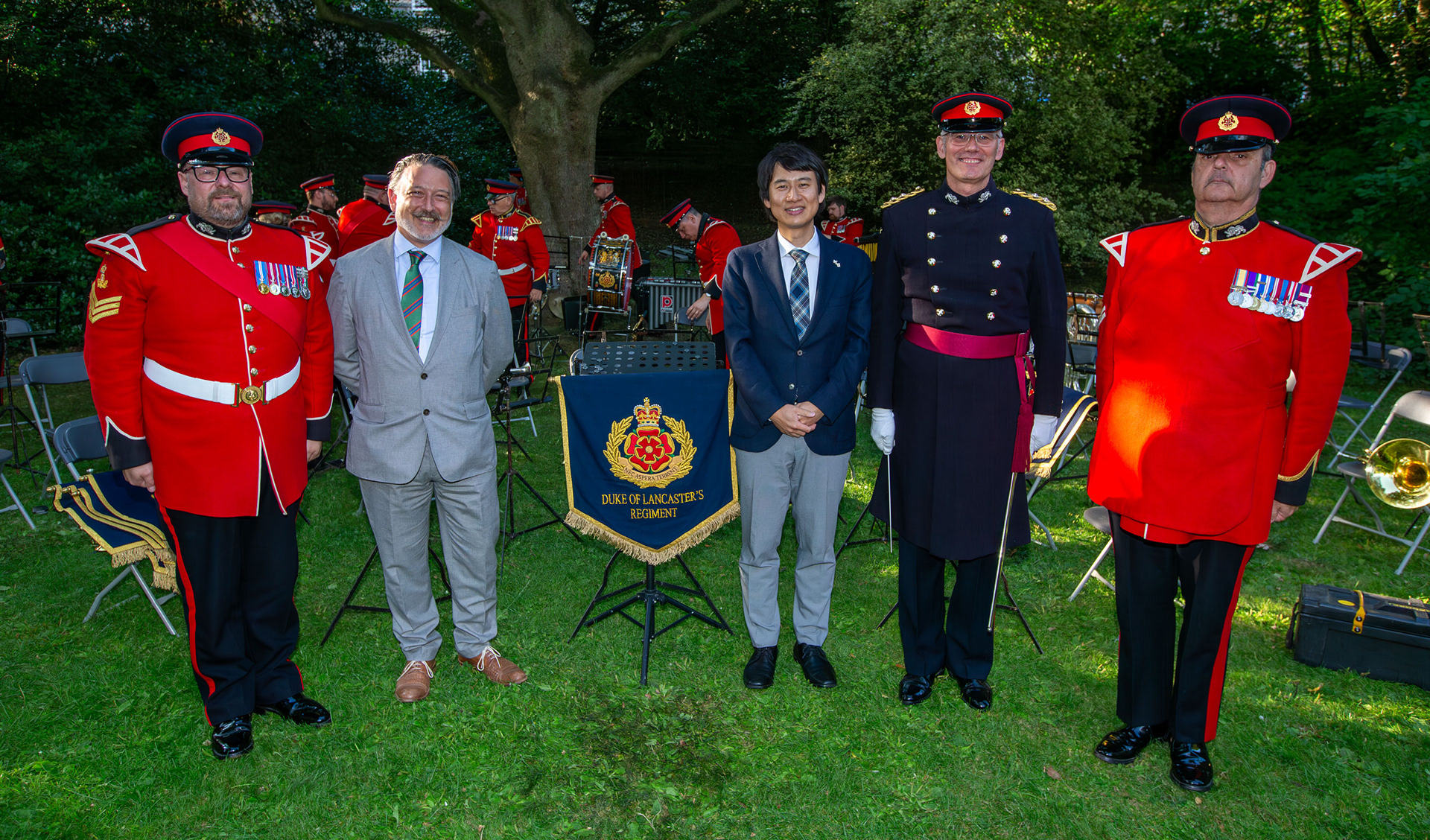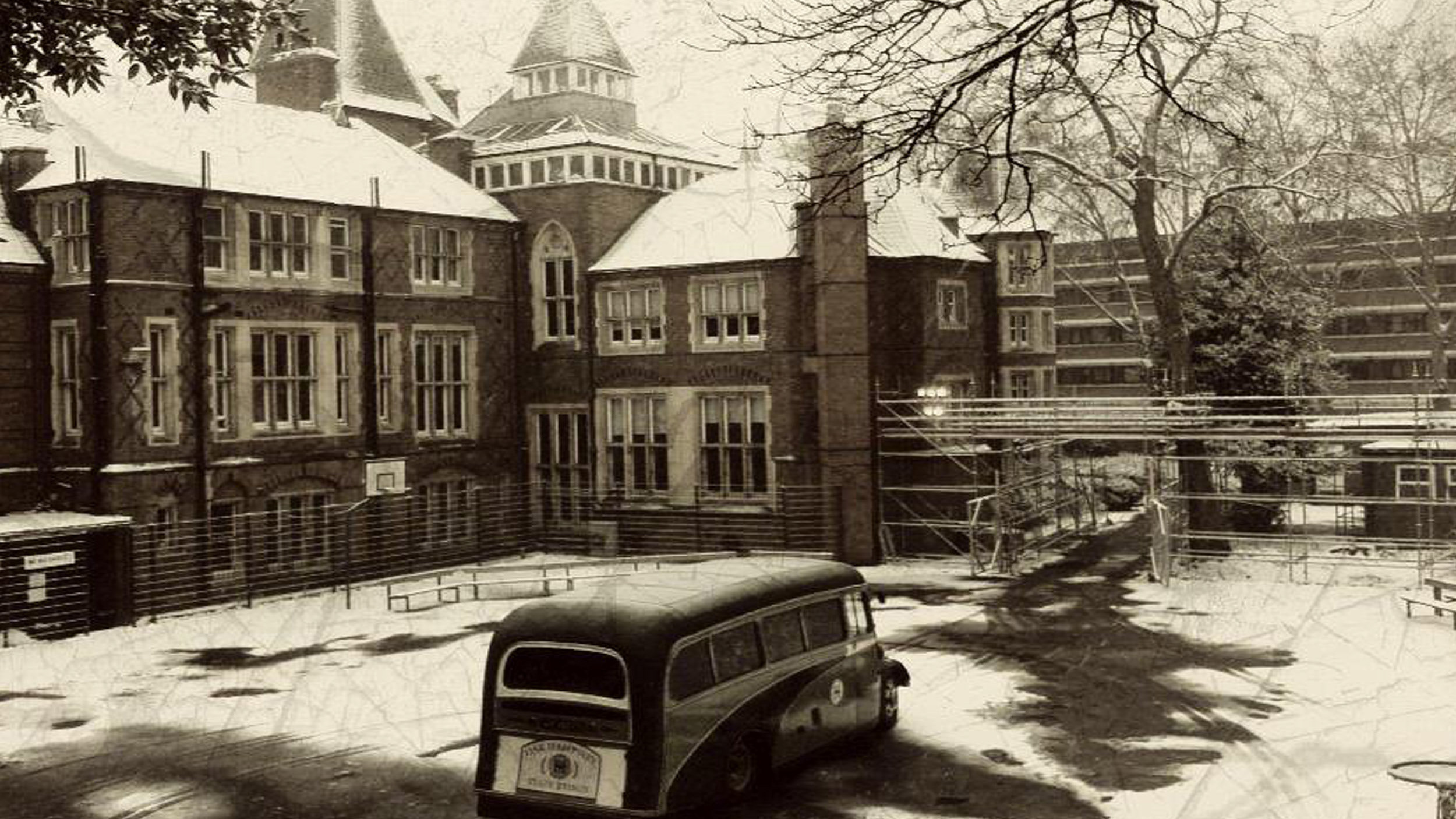



The Band of the Duke of Lancaster’s Regiment have asked me to introduce them this afternoon since I invited them.
They are in Scotland undertaking their annual camp in Leuchars Station. Their new Director of Music is my old friend Dario Salvi. We met, as many people do in the army on an unusual tasking. Both of us, relatively new members of 7 Scots, spent the afternoon in the back of a combi-van being driven around Aberdeenshire and giving cases of mineral water to people who had been affected by Storm Arwen. It was my OC’s idea for us to work together as we both “liked opera”. Despite the fact that Dario is a world leading expert in Strauss and early romantic repertoire, and I am a contemporary opera librettist and theatre producer we became firm friends.
The Band forms part of the 4th Battalion of the regiment, and was renamed in July 2006 when the Duke of Lancasters Regiment was created by the amalgamation of three historic regiments: The King's Own Royal Border Regiment, The King's Regiment, and The Queen's Lancashire Regiment. The band is based in Liverpool and is known for its versatility, performing a wide range of musical genres.
This afternoon you will hear this versatility, with a programme ranging from regimental marches to popular song medleys; the world première of an overture by romantic composer Adolphe Adam, which Dario will introduce, to a world première of a new fanfare by UK based Japanese composer Dai Fujikura, which I will now talk about.
Harmony Stones was commissioned by Minami-satsuma City in Kagoshima Prefecture, a city that the composer has close ties to, and is being given its world premiere here today, ahead of its presentation in Japan, thanks to the generosity of the mayor. It is highly unusual to give away your rights to premiere a piece of music you have commissioned, so it is worth explaining why the city has kindly offered us the first performance.
Minami-satsuma City is the location of a military engagement fought between the British and the Satsuma Domain in Kagoshima from 15 to 17 August 1863. An exchange of Naval and Battery fire ended in a truce, after which British forces were permitted to land. They came ashore accompanied by a military band. The band must have left powerful impression as it inspired the citizens of Kagoshima to start their own wind ensembles — in Japan the end of the Satsuma War is often regarded as the origin of Japan’s wind band culture, which now boasts around one million active players.
Finally, as we mark 80 years of peace between Japan and the UK later this month, can we pause to remember the sacrifices of antecedents of Duke of Lancaster’s Regiment and the Royal Regiment of Scotland who served in the Chindits and the 14th Army at Kohima and Imphal. One of the last surviving British soldiers at the Battle of Imphal, Richard Day, passed away last week at 99. He is survived by 105 year old Tetsuo Sato, a Japanese veteran of the same battle who he might have met on his visit to Japan in 2023.
While our world looks ever more uncertain, may we be steadfast in maintaining our friendships and cultural exchanges.









